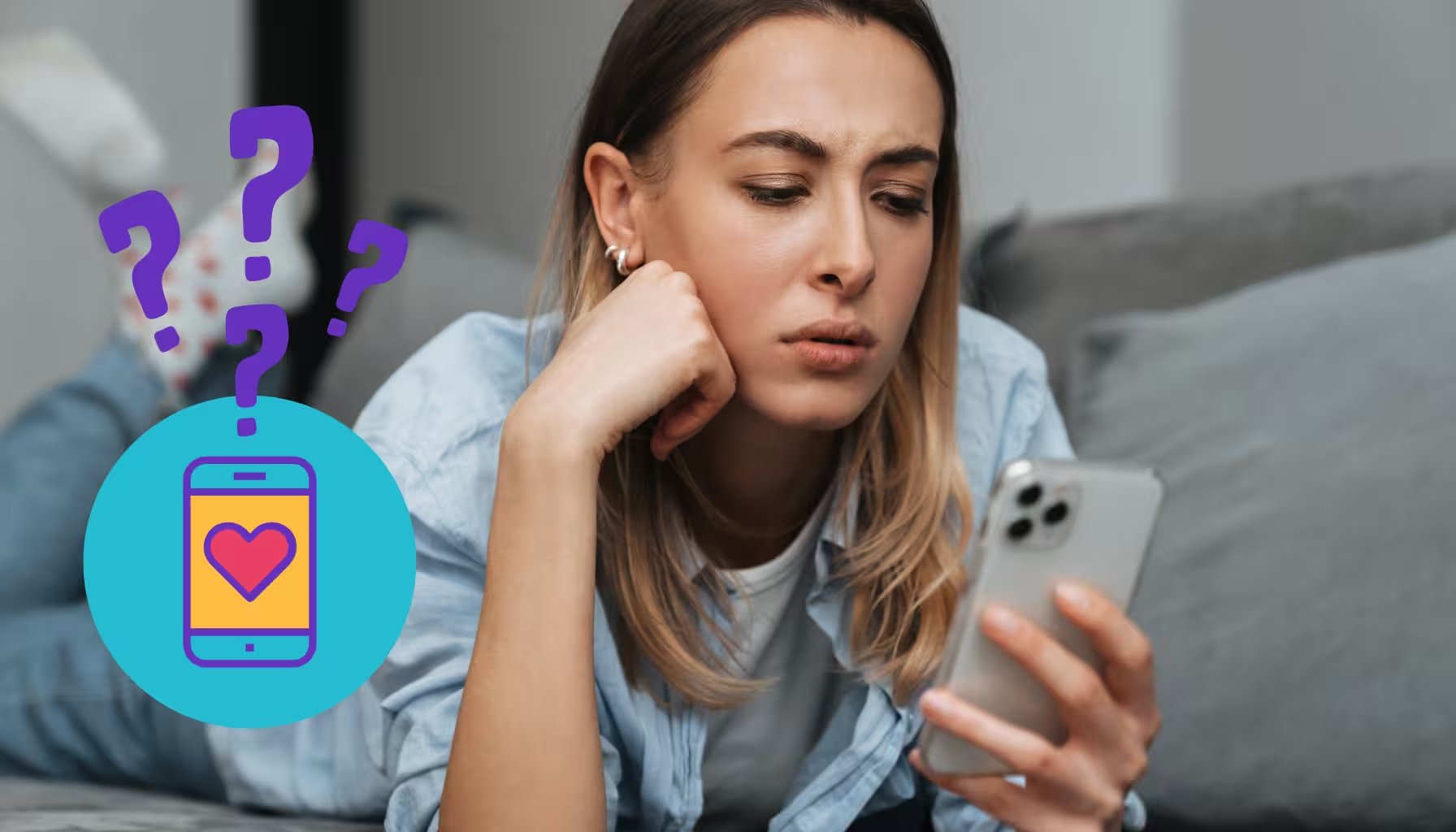I can only speak for myself, but when I’m in a new relationship, it’s really easy for me to lose myself somewhat. I’m not talking about disappearing completely—but the honeymoon phase is so intoxicating to put yourself on the back burner and throw all you have into your significant other in the beginning.
When you’re with someone new, they tend to become your go-to for everything because you want to spend all of your time with them. You talk to them the most and do everything you can together. And there is nothing wrong with that! But (yes, there is a “but”), while it’s great to spend quality time with your SO, being independent is just as important. Being in a romantic relationship does not mean you need to stick to each other like Velcro and be dependent on each other for everything. A healthy relationship is built on two people who stay who they were before they met but want to share their lives together—the operable word here being share!
That’s why we are going to cover everything you need to know about how to maintain your independence when you’re in a new relationship!

Why is Independence in a Relationship Important?
So, is there some kind of secret to staying who you are when you are boo’d up? Not exactly, but we asked an expert why holding onto your independence is a non-negotiable.
Relationship etiquette expert Mara Opperman explains, “Independence in a relationship is essential: successful and healthy partnerships create a space where both people can not only grow together but also grow as individuals. It’s important to have your sense of self, even while you count on each other. Sacrificing your independence can take away the things that make you happy, and this will show up in your relationship.”

Why Do People Struggle With Independence When Part of a Couple?
Why do some couples find it hard to be independent in a relationship? For a lot of them, the challenge stems from social anxiety. Dr. Scott Lloyd, director of therapeutic technology, says, “A major issue with independence comes from underlying social anxiety. Those with anxiety tend to overthink what others might be thinking about them and often assume judgments about their worth or behavior that are not fair or accurate. Building self-esteem through experiences in social and work settings can help address this.”
Dr. Lloyd also stresses the importance of having a diverse network of relationships outside of your significant other. Why? Because relying only on your partner can feel like too much and create unnecessary pressure or tension. Keeping up friendships, family ties, and professional connections gives you a healthy balance, and it reduces the risk of feeling overburdened in any one relationship.

Why Staying Independent Makes Your Relationship Stronger
Holding onto your independence not only helps you but it actually strengthens your romantic relationship! Here’s how:
- You Have More to Share: Doing different things on your own means you’ll always have new things to talk about when you’re together. It brings more value to the relationship and keeps things exciting, instead of it becoming repetitive.
- You Make Your Own Choices: Being in a relationship means you make joint decisions, but it’s still super important to check in with how you feel as an individual. When you make decisions based on your needs, it prevents any kind of resentment from building up over time, and it empowers you to make the right decisions for both yourself and the relationship. It also helps you assess if the relationship is still working for you and whether you’re confident enough to walk away if things go south without you losing your sense of self.
- You Meet Your Own Needs: Being independent builds respect between you and your partner because it means you aren’t relying only on each other for fulfillment. Each of you has your own hobbies, social circles, and interests, which ultimately creates a more balanced partnership.
Feeling Like You’re Losing Yourself? Here’s How to Regain Your Independence
If you think that you might be losing yourself in your couplehood, there are some ways to pull back and regain your independence, including the following:
Recognize Your Own Emotions
Understanding your own emotions is really important in terms of personal growth, so learning how to recognize how you feel in certain situations where your partner isn’t available helps you grow as an individual. You need to be able to make decisions independently, and tools like meditation, breathing exercises, or physical activities like running or swimming can help calm your body and sharpen your emotional awareness. Having daily practices that help you regulate yourself emotionally when your partner is unavailable or even unreasonable can help a lot.
Do Things on Your Own
It’s always fun to do things with your partner, but spending time alone is just as important! Find things to do that bring you energy and fulfillment. Solo hobbies give you room to grow as a person and give you new stories and things to talk about. And this means the relationship won’t burn out for lack of things to talk about. It keeps things fresh and interesting!
Respect and Accept Your Partner’s Perspective
No one is a carbon copy of another person, and recognizing and appreciating your partner’s different points of view can also strengthen your independence. When you respect and accept the other person’s perspective, especially when it differs from your own, you are contributing to a healthy relationship dynamic.
Interdependence, Not Codependence
A relationship should be interdependent, and that means that you and your partner are great together but are also okay on your own! When someone is codependent, they usually feel like they can’t function independently. Clinical psychologist Megan Fleming says, “Being interdependent means you’re good together, but you’re also good apart. Codependency usually causes people to lose pieces of themselves for fear of losing the relationship.
Stick to Your Core Values
Your core values are what make you who you are. You are going to evolve as a person, but you should never give up the things you believe in just to keep the peace in the relationship. Don’t compromise your core values for the relationship. Always remember what matters most to you.
Keep Doing What You Love to Do
Keep doing the things that make you feel alive and spark joy. Having a life outside your relationship is healthy, and you can always share those things with your partner—it’ll improve your connection.
Prioritize Self-Love
The most important relationship you’ll ever have is with yourself. Without a healthy relationship with yourself, it’s hard to build a strong connection with someone else. Always love yourself and take care of your own needs before anyone else’s.
Spend Time with Friends Without Your Partner
Before you were in a relationship, you most likely had close friendships and family ties. And guess what? Keeping those relationships is a must to make sure your happiness doesn’t rely only on your partner, so make and keep plans to hang out with your buddies and enjoy that apart—your SO will still be there.
Explore New Hobbies
It’s fun to share hobbies with your partner, but finding new interests to pursue on your own helps you grow as a person, too! Trying out some new hobbies will give you more to talk about when you’re together and keep the relationship from getting ho-hum.
Figure Out What’s Important Besides Your Relationship
Yes, your relationship is a big part of your life, but it should never be the only focus. Take the time to think about what other areas of your life are important—it could be your career, friends, family, or personal growth. “LReflect on what matters to you outside the relationship, and don’t forget to nurture those aspects.
Ease Up on the Pressure
High expectations can place way too much pressure on a relationship, and you know what that can cause—disappointment or frustration. But if you concentrate on your personal growth and well-being, then you aren’t expecting your partner or the relationship to fulfill your every need. A sustainable relationship is built on knowing that it’s okay to be close to someone, but you also have to accept and encourage that they’re a separate individual!

Rediscovering Your Independence in a Relationship
If you’re in a fairly new relationship and start to realize that you’ve become too dependent, there’s always time to get your independence back. It takes intention and some practice, but it’s totally possible. You can start by spending time alone to reconnect with what you like doing and get comfortable with being on your own again. The process can strengthen your sense of self without harming the relationship. Practice getting used to being apart from your partner, and embrace the feeling of missing them, but you shouldn’t feel like you can’t live without them. Spending time apart can make the moments you spend together feel even more special—after all, absence does make the heart grow fonder!

Avoiding Codependency in Relationships
Codependency usually rears its head when one person neglects their own needs for the sake of the relationship. In order to prevent this, you have to keep a healthy sense of self and be aware of any unhealthy habits that could be oozing in. A good relationship should support personal growth and individuality. Below are some ways to evade slipping into a codependency trap:
- Know Yourself: Cultivate a strong sense of identity. Don’t define yourself solely by the relationship, but by your goals, values, and personal traits. This will help you steer clear falling into the unhealthy patterns of dependence.
- Spot the Patterns: Take time to think about your past and current romantic relationships; take note of any behaviors that seem unhealthy, like constantly seeking validation or struggling with separation anxiety. Identifying these patterns will help you address them!
- Set Relationship Goals: Concentrate on things like making alone time a priority or making sure that both you and your partner are making independent decisions—setting these kinds of goals helps keep everything in balance.
- Recognize Your Needs: Be aware and act on what you personally need to feel happy and fulfilled in a relationship. It will help you hold onto your independence, and you’ll still feel secure with your SO!
Final Thoughts
Maintaining your independence in a relationship doesn’t just benefit you—it benefits the partnership! You’re a team, so you have to have a strong connection, communication, and keep a balance between you as a couple and you as your own person.
Look below for a quick recap of everything we covered:
Why Independence in a Relationship Is Important
Maintaining independence allows individuals to grow both together and apart, which means long-term happiness and personal fulfillment.
Challenges to Independence in Relationships
The struggles with independence can be caused by social anxiety, building self-esteem, and keeping a diverse network of relationships to avoid over-reliance on a partner.
How Independence Strengthens Relationships
- More to Share: Engaging in different activities gives partners new experiences to discuss, keeping the relationship lively.
- Own Choices: Independent decision-making prevents resentment and empowers individuals to assess the health of the relationship.
- Meet Your Own Needs: Respect is built when each partner maintains their own hobbies and interests, leading to a more balanced relationship.
Rediscovering Independence
If you’ve become too dependent, take time to reconnect with yourself. Spending time apart from your partner can strengthen the relationship and make shared moments more special.
Avoiding Codependency in Relationships
- Know Yourself: Maintain a strong sense of identity separate from the relationship.
- Spot the Patterns: Identify unhealthy behaviors like seeking constant validation.
- Set Relationship Goals: Make sure that both partners are making independent decisions.
- Recognize Your Needs: Stay aware of your personal needs for happiness and fulfillment.



